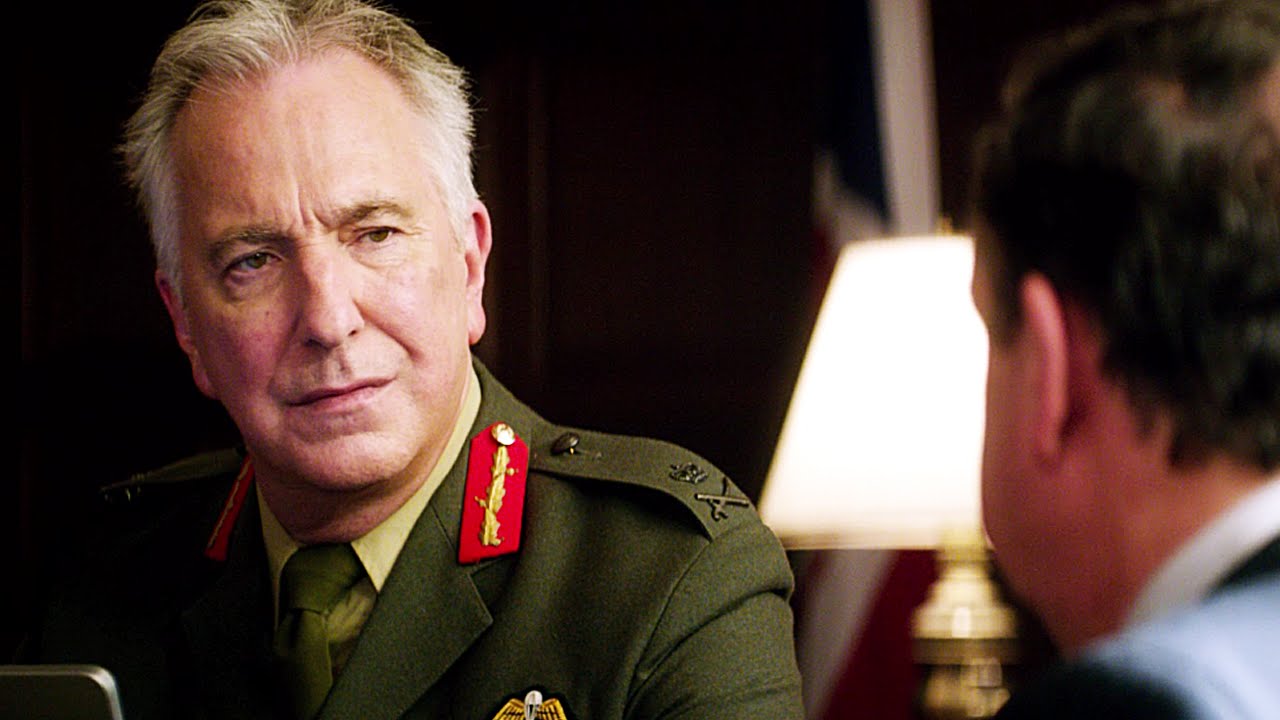Let’s face it. Eye in the Sky is just the beginning of the movies exploring drone warfare. While not the first film to tackle the subject, Eye in the Sky continues a strong start to Hollywood’s takes on what it is like to engage in war today. Plus we get to see Alan Rickman act again, potentially for the last time.
Colonel Katherine Powell (Helen Mirren) has been tracking a British defector to Al Shabaab in Kenya. Working with Kenyan military tech specialist Jama Farah (Barkhad Abdi) and American drone pilots Steve Watts (Aaron Paul) and Carrie Gershon (Phoebe Fox), Powell uncovers a potentially imminent terrorist attack. Powell then solicits up the chain to Lt. General Frank Benson (Alan Rickman), who tries to obtain multinational bureaucratic consent for a drone strike on the property.
Good Kill, the last drone warfare film, focused on the difficulty of life for a former real pilot to current drone one. Eye in the Sky takes a higher level look at how messy politically drone warfare could be. Bureaucratically, drone warfare must be a nightmare for defense departments. There’s so much to account for: for a single strike, after you clear it legally with the Attorney General, after you clear it with a country whose citizen you may harm, after you explain th situation to the drone pilots, after you potentially put your local spy in harm’s way, you still can’t launch because a little girl decides to sell bread in the wrong place at the wrong time. Eye in the Sky is pretty comprehensive and well thought out in the decision making process, showing various levels of decision and indecision with an increasingly complex scenario at all levels of the process. I know that sounds boring, but Eye in the Sky uses editing very effectively to convey how frantic and widespread the decision making process goes for a single drone strike (at least in Britain).
Eye in the Sky is so successful at the bureaucracy and setup of a complex real world scenario, I wish there were more thought put into the consequences of drone strikes. Yes, there are some visceral scenes of raw emotional downfall of the drone strike, and one in particular was devastating. It was also nice to see how taxing a strike can be for people far away from the conflict, regardless of military affiliation or political beliefs. However, very little time is given to the aftereffects of the strike on locals, particularly people directly affected by them other than obvious choices. For a movie that spends a great deal of time studying the drone strike process, the aftermath feels rushed and underdeveloped and a missed opportunity to make Eye in the Sky special.
Acting is not as important in Eye in the Sky, but it is solid where it needs to be. Alan Rickman and Helen Mirren exude power and influence as well as respect. When they both speak, people listen. Aaron Paul gets some nice moments as the drone pilot, as well as his co-pilot Phoebe Fox. Barkhad Abdi is also fine as the ground support, though his role should have been beefed up because of how fascinating his character was. There are lots of bit parts in Eye in the Sky, and everyone comes in and nails their 5-10 minutes to make the movie better.
If seeing more drone movies means seeing more stuff like Eye in the Sky, sign me up. There is a lot to learn about the new war technology and engagement that I am excited to see what else Hollywood can mine from this subject, since we are privy to so little of it. Who knows, if Professor Snape and Queen Elizabeth can teach us so much about drone warfare, think what else is out there for us: maybe Iron Man gives us some insights.

